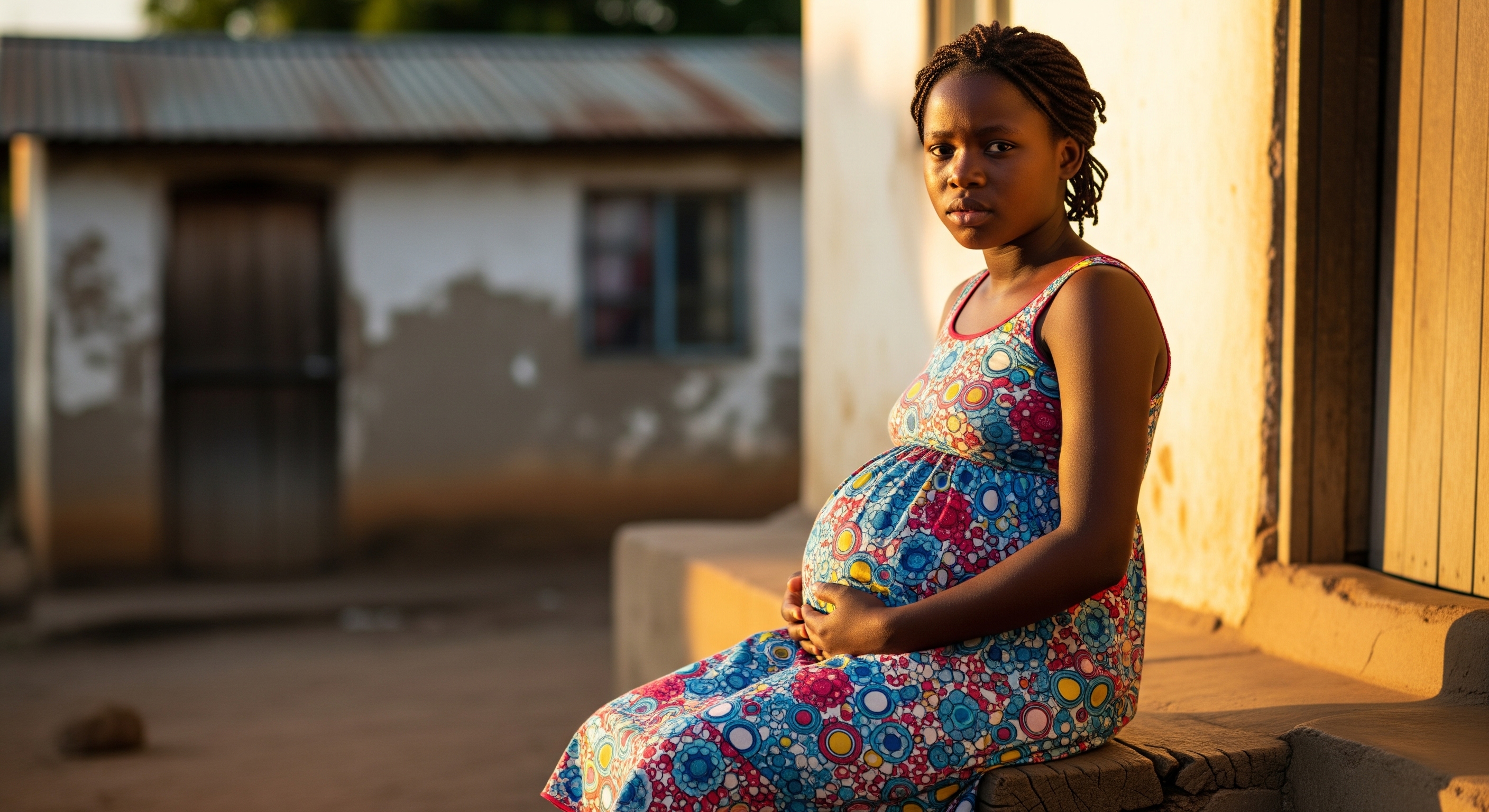15-year-old Monife is living with HIV, lost both her parents to HIV-related illness years ago, and lives in a single room with her aunt and two cousins.
Monife became pregnant while in form 1 at high school. Unfortunately, the school dismissed her as they would not permit her to attend while pregnant.
CCP director, Willard, hopes to discover who the father is as, if it is an older man as Willard suspects, this would be a police case of statutory rape. Willard told us, “The team is seeing more teenage pregnancies these days, even 13-year-olds. Sugar daddies have been a problem - older men who offer incentives like a bag of sugar, or other food, or a dress, to a teen to sleep with them. But the main problem these days is men who go to mine illegally and come back with money. The girls have no money, and may be very short on food at home, and can't resist the transactions proposed.”

The Community Care Programme (ACET CCP) in Zimbabwe was established to respond to the increasing number of people affected by HIV in the rural communities of the Gulati district, where drought, poverty, and unemployment make life especially difficult.
With over 200 volunteers, ACET CCP provides school breakfasts, food packs, educational support and operates a youth skills training centre to reduce levels of unemployment in the community. Local youth, some of whom are AIDS orphans, learn skills such as dressmaking, carpentry, peanut butter-making, and poultry raising.
Zimbabwe has long struggled with teenage pregnancy and child marriage. Although progress was made in reducing these prior to 2020, the COVID pandemic saw a significant rise, especially in rural areas. Many of these girls view marriage and pregnancy as a way out of poverty - or they are victims of sexual abuse.
According to a 2023 UN report, 31% of adolescent girls are forced to have sex on their first sexual encounter.
In June, Willard attended a meeting about the problem of teenage pregnancies and early marriages. “The National AIDS Council is asking CCP to run a programme to educate the community on the effects of these two issues. And they want to make contraception available so the girls can access it at local clinics without being asked questions.”
